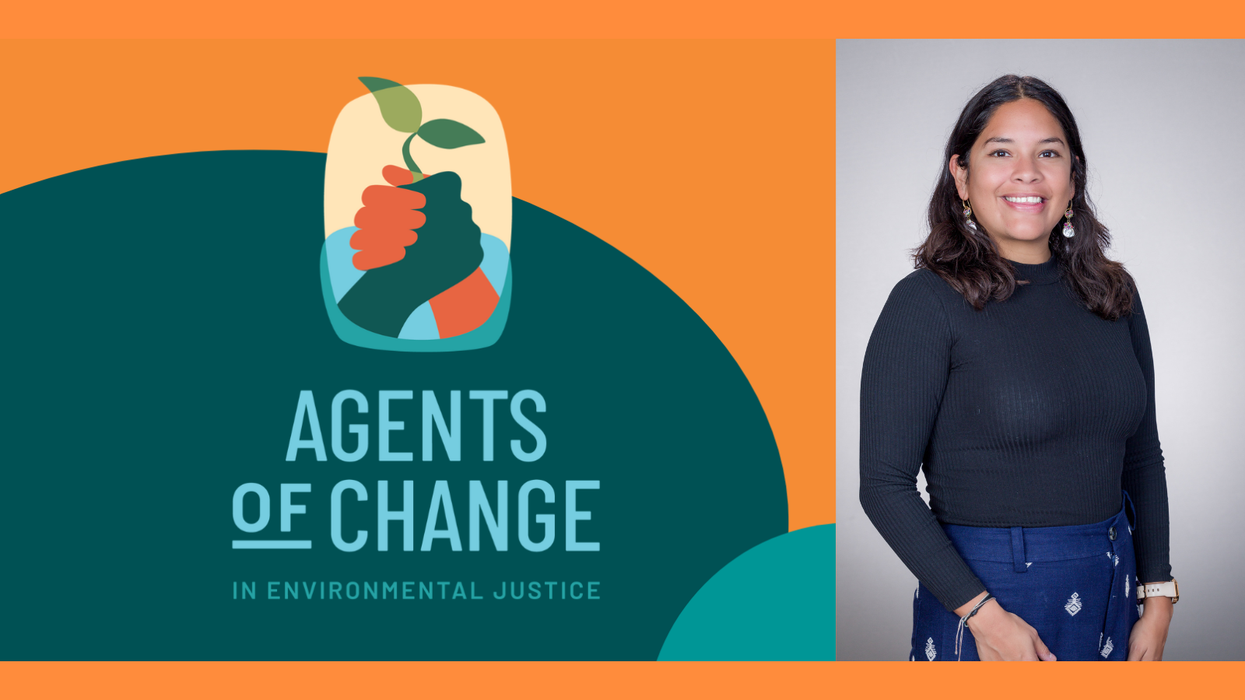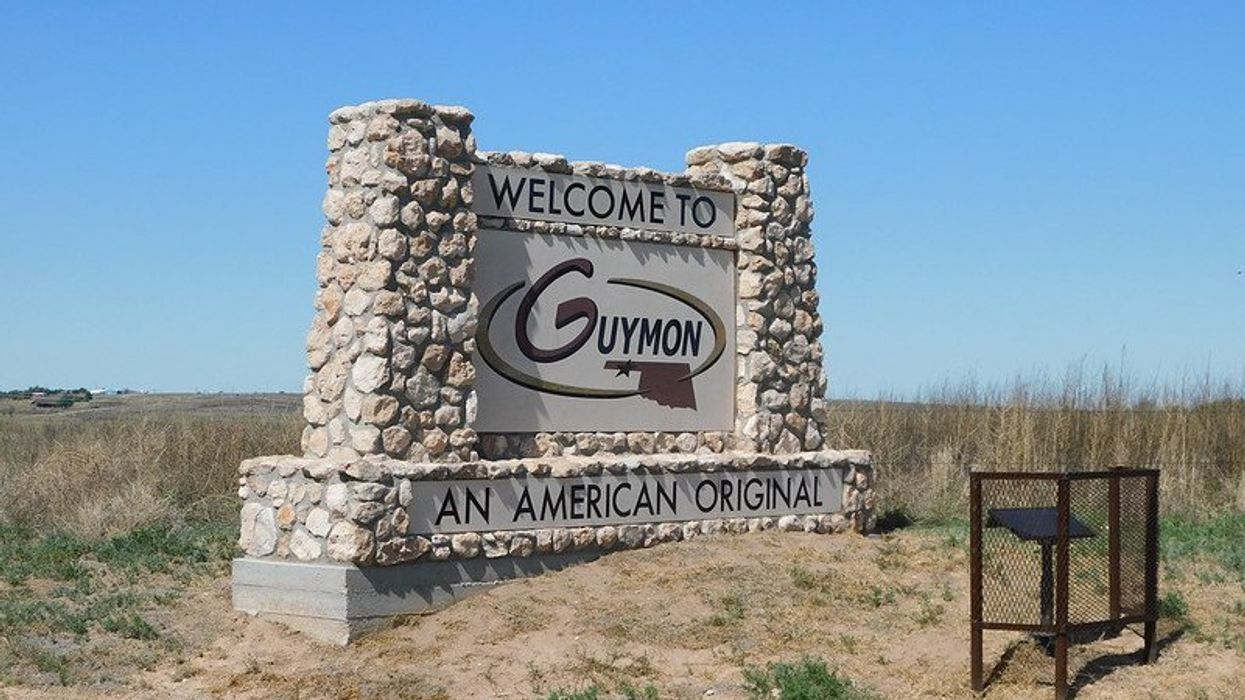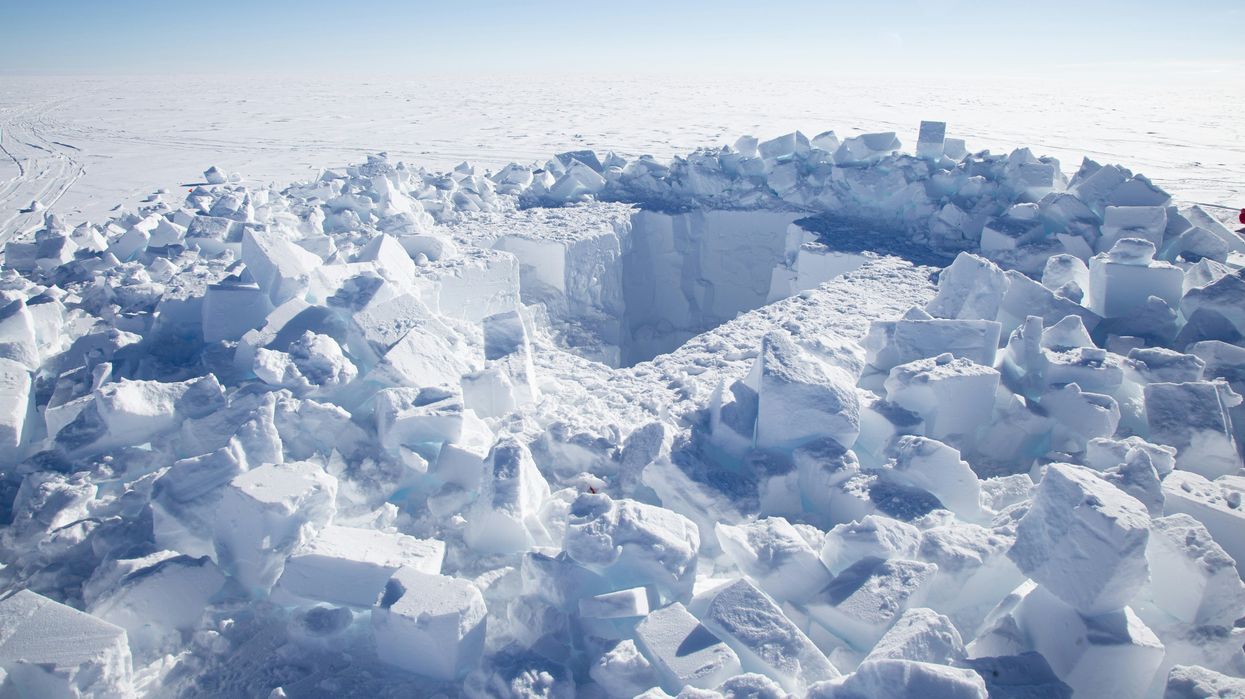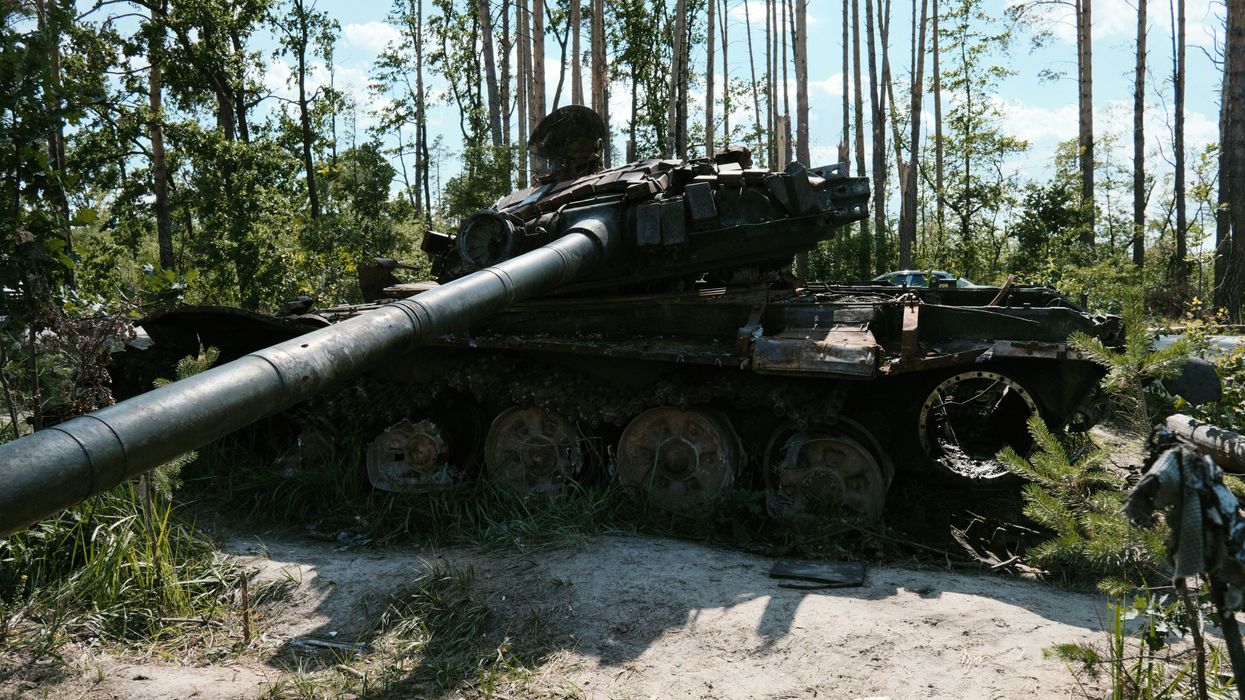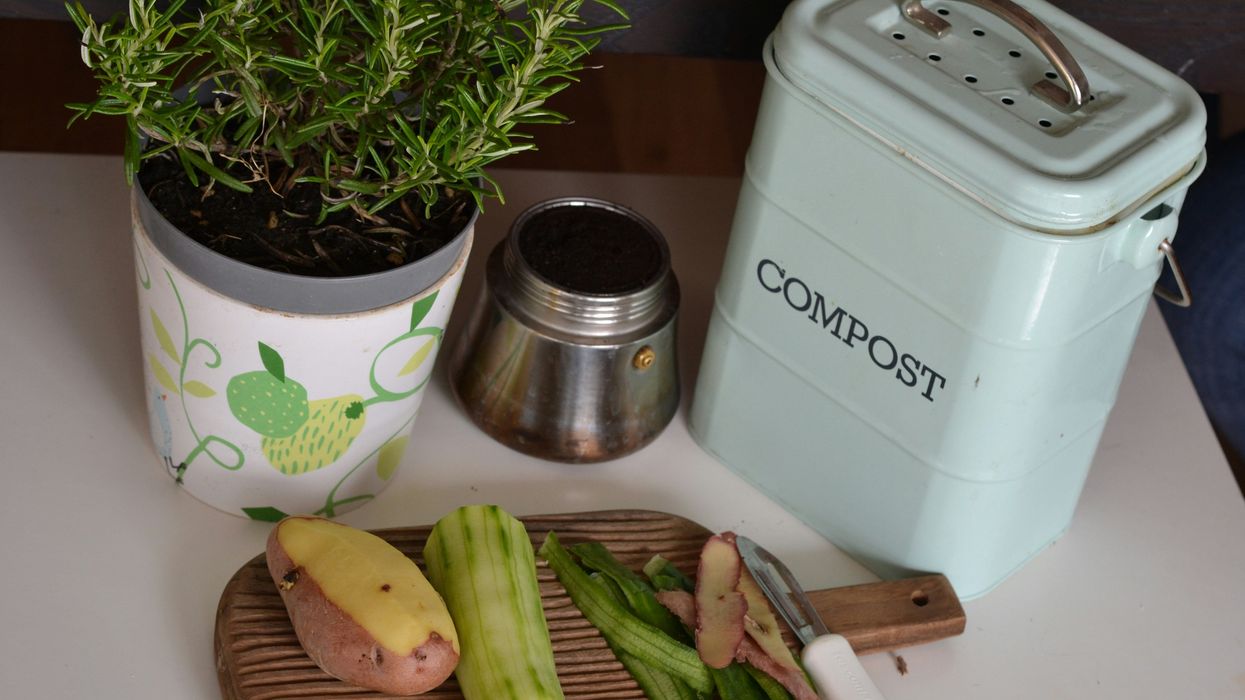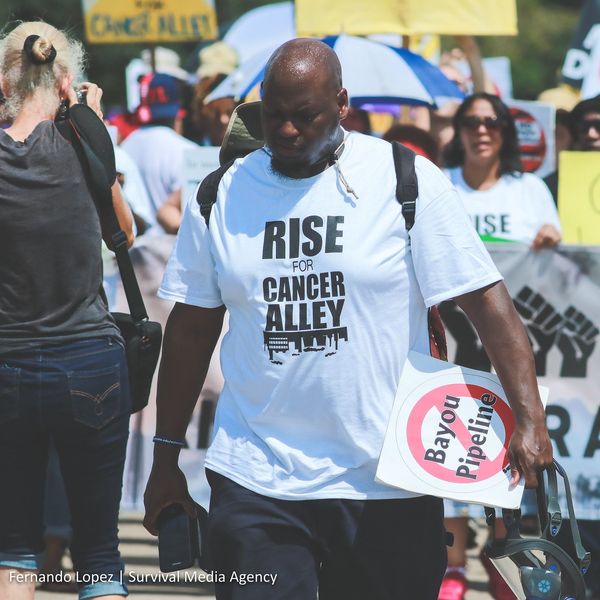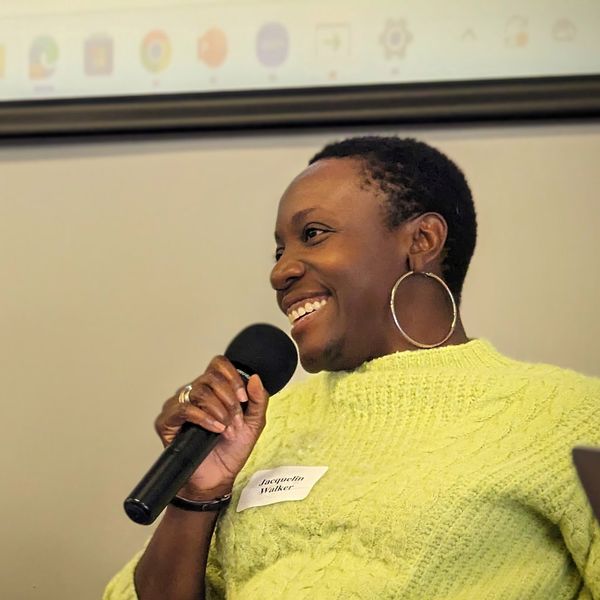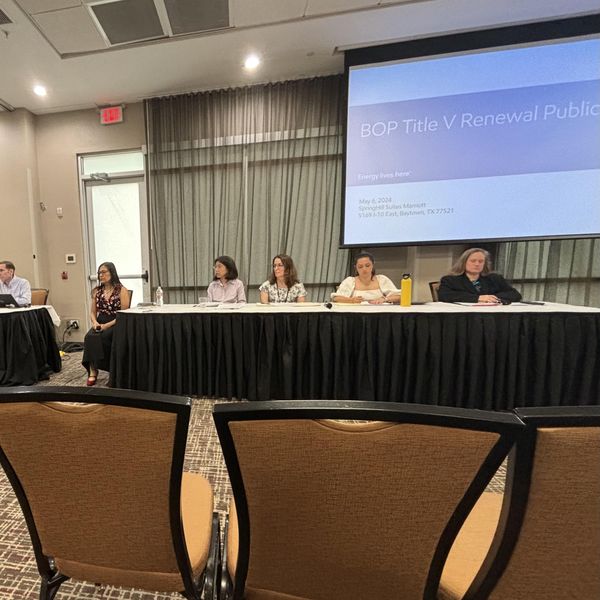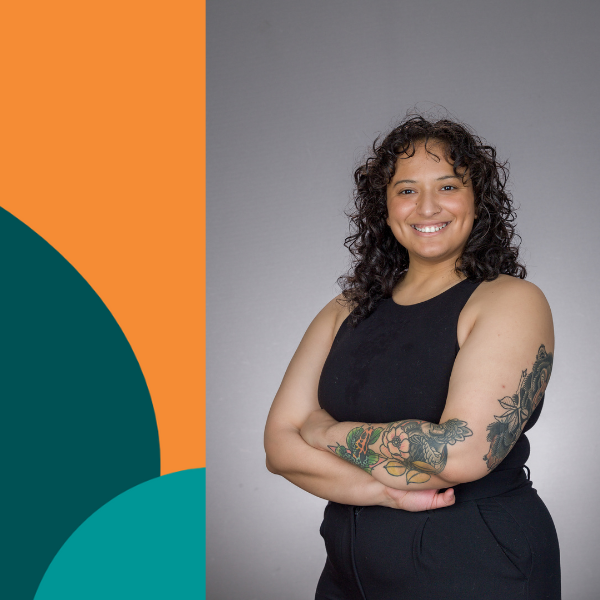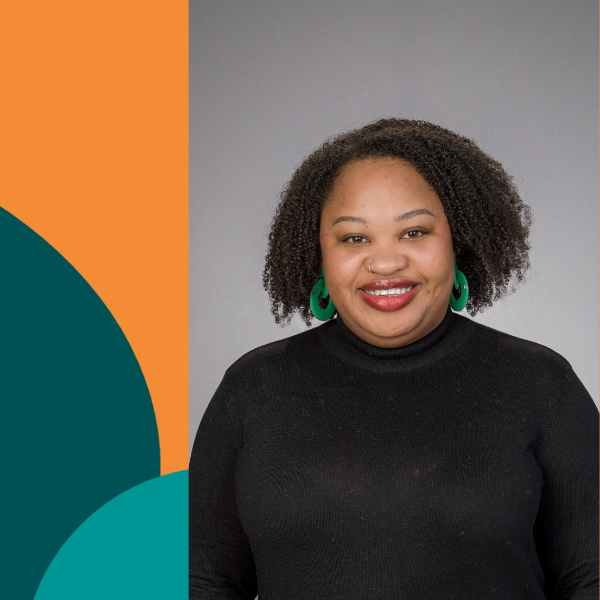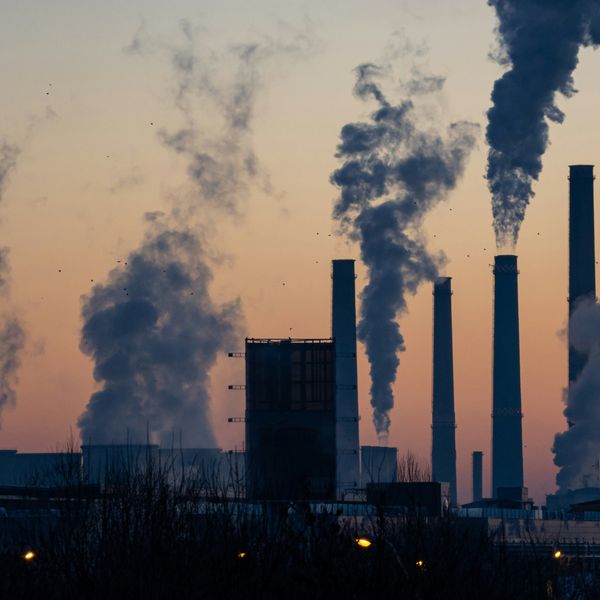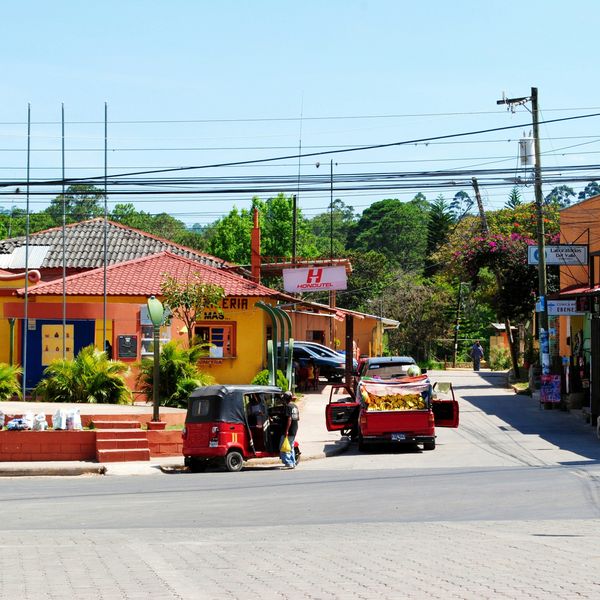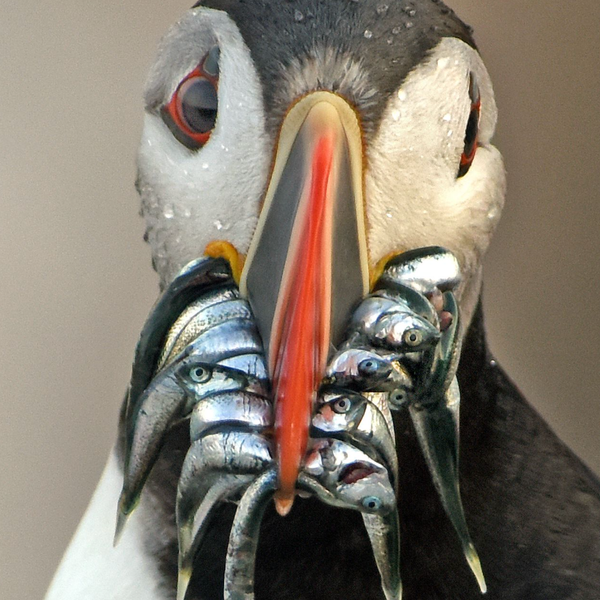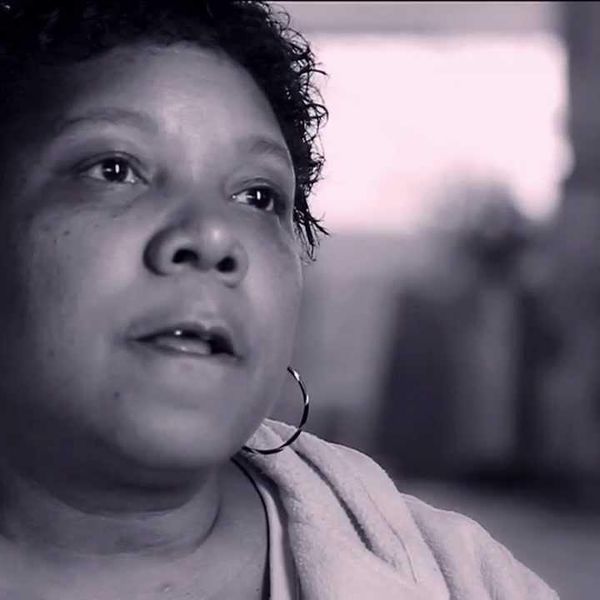Liliana Sierra Castillo joins the Agents of Change in Environmental Justice podcast to discuss the concept of blue justice and how the expansion of aquaculture impacts small-scale fishery communities.
Sierra Castillo, a current Agents of Change fellow and Ph.D. candidate at the Bren School of Environmental Science and Management at the University of California, Santa Barbara, also talks about how she became passionate about oceans, how we can rethink marine protected areas to center communities, and how meaningful it is for her to do research in her native Honduras.
The Agents of Change in Environmental Justice podcast is a biweekly podcast featuring the stories and big ideas from past and present fellows, as well as others in the field. You can see all of the past episodes here.
Listen below to our discussion with Sierra Castillo and subscribe to the podcast at iTunes or Spotify.
Transcript
Brian Bienkowski
Thank you so much for taking time to meet with me today. I'm really excited to have you on your work when I was doing a little research for this. It's different than other fellows we've had. And I'm really excited to talk about what you're doing. But as you may know, I'd like to start way at the beginning. So I was wondering if you could talk a little bit about your childhood and where an interest in the environment came into your life?
Liliana Sierra Castillo
Yeah, of course. So I'm originally from Honduras. And it's funny because even when I was a child, my parents don't really live near the oceans. They live in the capital. But even when I was like, I remember specifically, I was like in second grade, and we did an essay. And it just fascinated me to know, when my professor was giving feedback that we know more about the moon, that about the ocean. And I think that just stuck in my head forever. And then at that moment, I decided I wanted to be a marine biologist, even though I didn't know what that meant. And then I guess I had the privilege that my parents were capable of taking us to like the beach around the country and exploring. I just, it's always fascinating, like how vast and amazing the ocean is. Because that's how it all started.
Brian Bienkowski
That's awesome. I grew up in the in Michigan, in the Great Lakes region, so not oceans, but really large lakes where you can't you know, you can't see the end of them. They're massive. And I just remember my whole life, no matter how many times I visited them, it always kind of blew me away or gave me this feeling of inspiration every time I see them. And it still does it to this day. And I don't know, do oceans. Do oceans do that for you? Do you still get kind of a sense of awe even though you've been working with them for so long?
Liliana Sierra Castillo
Yeah, definitely. I feel these day like every time I walk past an ocean, as you're saying, like, I am just in awe how big it is and how much it is that we don't know. And I guess now, in the past 10 years or so that I've I've started working more on the human dimensions parts of oceans. It's more of like, wow, we have so much of these, like space and water and things but like, so much people are being affected by your kind of like that more critical analysis. I think that is also like it's more of an inspiration in that way as well.
Brian Bienkowski
For sure. And maybe maybe there's some overlap in this question. Since we've been talking about your your love of oceans, but you started your university studies at the National Autonomous University of Honduras in marine biology. So what was it specifically about oceans? Was it you know, fisheries? Was it how humans interact with them? Was it about their vastness or you know, all of the above.
Liliana Sierra Castillo
So, it's funny because as many marine biology programs, my undergrad was very much like ecology focus. And then my last quarter I took a the only fishery class. But at that moment, I still thought in my mind that I wanted to be a dolphin trainer. That was like my life goal. And then I was very lucky to have we have in that program for you to graduate, you have to do a professional internship. And so I got the super cool experience of working with the World Wildlife Fund in a bay area called Cortés*, which on the northern coast. And for six months, I was just working with fishery communities. And I was like, Okay, this is what I want to do, like, you know, those things are cool, but it's not like, and I discovered, like, you know, I really love the intersections of like, I get to be in the ocean and be in that moment, I used to be covered a lot in fish blog. So I was like, clean to the fisherman. And I love talking with people and like learning what they were doing. And I also found that I love, like, figuring out how to like, give back the results, right? that I'm learning from analysis back to the communities and all that like connection of cycles and turn it into, like management tools. And so yeah, I guess like it was, the university gave me the basic tools, and then this experience of the internship that kind of changed everything.
Brian Bienkowski
Well, these coastal communities, it's not just a, it's not just this natural wonder, like we were talking about, but it's so intertwined with culture and economics. And, you know, we're gonna get into a lot of that today with a lot of the work that you're doing. So it goes much further beyond as well, that's really pretty. It's so you know, intertwined with these coastal communities. So, before we get to your research, I want to know, a moment or event that has helped shape your identity up to this point.
Liliana Sierra Castillo
Yeah, I still, so I think for me, it happened again, in this internship. So this was like 10 years ago. And again, I had since from that moment, before that moment training on like, sadly, a lot of like, environmental classes are very much like, you know, we need pristine nature, we need everything to be protected, and all that, right. So I came up with that mentality. And I remember the first day, on the field with these fishery communities, I was with this fisherman who sadly has passed. Now he passed away, which is very sad. But I still remember he told me, you know, like, so what's the point of like, you guys, tell us like, we cannot fish in this area, my organization. And that moment, my NGO was internship with, they were trying to build a protected area, marine protected area, and like, we moved the fisherman, and he was like, "What's the point of view protecting these resources if we don't even have anything to eat? Like, what are we going to eat?" And so that, for me, was like, it was a moment that I it's I know, it sounds dumb. But in that moment, I was like, I cannot believe, that for all my undergrad, I was so like, naive, right? Like, in this little bubble of like, privilege that I didn't understand anything until that moment. And I will say, Yeah, you are 100%. Right. And I think that change everything until right now, 10 years after what I've gotten all the way since.
Brian Bienkowski
I don't think that sounds dumb at all. In fact, where I live in the northern Great Lakes region, a lot of people are focused on forest wilderness, you know, wild areas. And there's also indigenous communities up here who use those spaces to hunt and gather. So the idea of just blocking them off to protect them is is not in line with what how they've used these areas. So I totally, I totally understand what you're talking about. And I grew up the same way, like, oh, yeah, protect it. You know, that's great, preserve it and protect it. That's the way to go. And I think, hopefully, we're starting to realize that that's not always the most just way to do things. So a lot of your research now centers around the growth of aquaculture globally and the impacts it has on small scale fishery communities. So first, can you kind of orient those of us who are not too familiar with this trend? And what does aquaculture entail? Where are we seeing the most expansion of it?
Liliana Sierra Castillo
Yeah, so I think for that question, because I know a lot of people, it's funny, because like, to this day, for example, a lot like my mom doesn't really know what I do. Right? So fisheries, and that's where I it's my big specialization, right? It's everything that's been caught wildly in any body of water, I do marine fisheries, but it can be lakes, as you're saying in Michigan, rivers, whatever. Aquaculture is basically I tried to think of it as like a farm or agriculture on water. So it's, there's some sort of human control component over it. It's literally you have a seed, or a baby or seed of an oyster, for example, and then you help it grow. Like you control it in an environment until it grows and then you harvest it. So it's a big difference from fisheries, right. The other comparison I tried to think about it is like hunters versus gatherers, right? Like hunting is the fishing and gatherer races like agriculture kind of wise. Um, so I'm gonna say in the past, so my expertise is fisheries, but going to aquaculture in the past, I'm going to say maybe since the 80s, there's been a big boom to kind of like grow aquaculture with this kind of idea that seafood is declining, the fisheries production, so As we all know, it's declaiming for a lot of lot of factors. So the idea that aquaculture is gonna, like provide, like all the seafood we need. And so it has had its ups and downs, I think around the 90s. It's when the shrimp aquaculture started around the world, especially in Latin America, coming from, again, like a lot of funding from like not, Latin America. And that was a very bad situation, because as you know, aquaculture for shrimp, they destroyed a lot of mangroves. So it was a whole thing, right? So then aquaculture kind of started to decline. And I think back, I think, would have saved maybe the, like, 15 years ago or so there's like this new kind of push to aquaculture through the blue economy, right? All these these cores narratives. And now it's kind of like thinking that aquaculture besides giving, like that seafood, the seafood supply, that fisheries might not be giving. Now, it's kind of like, okay, now, it's also can do ecosystem services. Now, it can help people, now it can provide all these other benefits, which in some instances it does. But what we're seeing in is where my study comes in is like when these when it's being implemented at a local scale in communities is specifically in underdeveloped countries. It's not getting all those benefits, that it's promising. And in reality, it's creating a lot of injustices. So that's where I come like, trying to understand why and how can we do it better to really have the benefits that you should have.
Brian Bienkowski
So what are some of the opportunities that this expanded aquaculture brings? And conversely, what are some of the problems?
Liliana Sierra Castillo
Yeah, so some of the opportunities, you know, like, I've seen some examples where it actually provides employment to people, right. And a lot of again, I work in small scale coastal communities, so very different from industrial fisheries or aquaculture areas. So a lot of these communities, they're very marginalized, they're very vulnerable to shocks and a lot of things happening around them. So I've seen some instances where like, if doing that, like correctly, aquaculture can provide them with employment, like they can work, they can provide them with food security, they can provide, if done correctly, like benefits of the ecosystem, we know that some of these species might contribute to ecosystemic benefits. But the thing is, like conversely, when he's not being done correctly, it can also impact for example, a lot of these implementation of aquaculture right now is kind of like, okay, you have to stop fishing. And now you're going to do aquaculture. And as you mentioned a while ago, for these people fishing has a lot of cultural traditional aspects, right? It's not like they go fishing because money, they go fishing, because it's who they are. And so that impacts a lot, right? Like, that's already like very bad, kind of like being like, "Okay, you're gonna stop doing these things that you have done for four generations ago until right now, you're gonna stop doing it, even though you want to just because I want you to stop doing it." Now. So the way sometimes is being done is kind of like, not just like stop fishing, and it's going to impact relations, as I said, but also like, think about it, if you have such a vulnerable system, you want them to have multiple economic activity activities, where livelihoods, if you remove fishing, and then use of aquaculture when there's a shock to the market or to the food system or whatever, then what are these people going to rely on? Right? Like, what are we doing here. And then the other, that third thing that I've seen a lot, is that aquaculture tends to be very tends to be more of like, it can be more like division of classes, like people can like accumulate more as an aquaculture, like, for example, if you and me both have aquaculture operations, and I have the capacity to buy more land, to lobby more, to get more products, more seed everything I have maybe got a I studied to understand what's happening, I understand all these things. I'm gonna grow more, right, versus you're gonna stay tiny, tiny. And then that creates a problem, right? Like what's happened with the tiny, tiny, they're gonna be eliminated for the system. And I think the the worst that's happening is that people keep thinking that aquaculture, as I said, in the beginning is gonna solve all the problems that seafood and fisheries are facing. And it's not, it's not a bullet solution, bullet-proof solution. And so it's not any nice like, once in these communities, they are doing aquaculture because whatever someone told them, the people that are supposed to be managing the fisheries kind of forget that that system exists. And so the fisheries are doing very bad. They're not doing at all good. And then aquaculture is kind of there, but it's not really doing anything and it's kind of like creates a whole mess.
Brian Bienkowski
Yeah, that makes sense. And you mentioned just fishing being a traditional activity for many of these communities. Can you just talk about get a probe that little further, how this transition has overlooked kind of local context, local cultures and history and expand on why that's a problem?
Liliana Sierra Castillo
Yeah, so um, I can give you an example, actually from one of the communities I work with. So I have done all my fieldwork, most of it in in Baja California, so in Mexico, and I started in Honduras last year. But Baja California, so that's an interesting example, because there's been pushed to do aquaculture of different species from back on from 2011. You know, for many reasons, it hasn't worked, some has worked, some doesn't. But in 2020, when I started working with them, with this one community, there, the there was a local NGO pushing to the oyster aquaculture, right, so sounds all good, right? Like, yeah, that's gonna be always the aquaculture, the community is gonna be happy, you know that. But when you go and talk with the community, like I did that for three years, you notice, and they told me that to me many times, you know, like, I'm not happy. I miss fishing, I wish I could have a boat to go fish all the time I won. I missed the traditions, I miss the freedom associated with fishing. And so as a consequence, like if you think about it, their will they're not, they're not happy, there will be nice, not good, right? Like if you think about what they miss from fishing, and also because they're doing something they don't want to like aquaculture. It's kind of like that this is the aquaculture project was not being successful, right? Like it didn't really work because like the people didn't believing in through time, because fishers as I said, they still wanted to be diving and fishing and all these things. There was an increase on quote unquote, illegal fishing in which I don't like that term. But that's what it's called, you know, when you don't follow the management rules, they continue fishing goes, does what they want it to do. And so in the any creative like, besides all that I'm telling you, it creates a very sad like social situation, right? Like when you have a community that's divided, lot of social tension, tension between the community and the NGO. We've seen is going to affect everything, right? Like it's going to affect what if a project comes again, or like funding for fish, it's like a whole whole sea social situation being created. Because of not considering something as simple as being to go ask them like, Hey, guys, if you want to do aquaculture, if they say yes, how much time do you want to invest? What species you want to do? You know, do you still want to go fishing? Why don't we do it all together? Like think simple solution says that.
Brian Bienkowski
So you mentioned working in California, Mexico, and now expanding your research to Honduras. Was that was it meaningful to you to expand your research into your your home?
Liliana Sierra Castillo
It was super meaningful. Actually, I was very excited. I've always, I always strive to do all like every research, I do kind of like the think about how to be applicable to Honduras. And actually was super cool. Last summer, I went back to the field areas where I started back 10 years ago. And it was so sweet, like people still remembered me. And I still remember them. And I was like, Yeah, that was super. It was like a very impactful moment. And it's it's very interesting. Because like Honduras. They've done aquaculture in the past, but this area is starting. There's like a super cool organization that's trying to like maybe do aquaculture, but they don't want to do it, like half just randomly they want to understand like, the social dimensions that are happening before transforming the system. So it's been very interesting to understand the system as it is a fishery system, what's going on? How can we maybe do aquaculture what is needed? And it's just cool to go talk with people and hear them.
Brian Bienkowski
Maybe I'm pretty ignorant when it comes to aquaculture, but I feel like I've seen headlines on I mean, are there pollution concerns? Is that something that you know anything about because I know sometimes when you have such a concentrated amount of fish and fish feeding, there can be pollution concerns? Is that? Is that an issue?
Liliana Sierra Castillo
Yeah, so definitely aquaculture besides everything I'm telling which I'm talking more the social things, it also has like some, like as you're saying, I guess this is more of like an ecological consequence, right? So I feel like the pollution it's more well I think it's more when it's like an industrial scale size right where you have maybe someone and you're putting like antibiotics or whatever and like the feed right like when you feed them that food leaves the area and stuff. But also like at a smaller scale. Like for example in Honduras, what happens a lot. You have the tilapia farms, and even though they're small, there's two big I guess, kind of pollution consequences. One is again, the feed that you give them right the feed makes the water around and like contaminated it gets you to revise. And second, a lot of these aquaculture operations use non-native species. Tilapia is non native. And so it scapes, because in aquaculture is always going to escape. Then you have the problem of like, okay, what is the, how is this non-native species going to, like impact the ecosystem. But in the, it's super interesting, because in Baja in Mexico and other parts of the world, they're pushing to use oyster aquaculture, because in theory, oyster has a lot of benefits, right? cleans the water, it a lot of ecosystemic services, I think it also sometimes is being used at like, what there's erosion and you use, like, oysters to, like, provide more structure to there. But there's also a lot of unknowns of oysters, right? Like, we don't know what impacts are being made by oysters in the ecosystem. For example, in Baja, the oysters that are being used are not in them are non native. So we don't even know how they're affecting the native organisms from the ecosystem. And all these other questions, but in oysters, you don't feed them. So at least you don't have to worry about that.
Brian Bienkowski
Before this call, I was at my local, not today. But recently I was at my grocery store and realize that I lived 20 minutes from Lake Superior, a massive fishery, the biggest freshwater lake on the planet. And almost all of the fish they sell there is farm raised from Chile and other places around the world, which is just indicative of our super broken food system. I think. So you mentioned you mentioned the places you're working in, in, you know, Mexico, Honduras, and California. And I'm wondering, what are some of the ways that you and others are working to kind of better incorporate small scale fisheries and their well being into these kinds of changes in systems?
Liliana Sierra Castillo
Yeah, I think that there's a lot of good people trying to, as you're saying, like to give to voices to small-scale fishing communities and put them as at the center of all these policies or, or I don't even know, like, yeah, I guess their policies. So I think parallel to the blue economy, and blue growth, maybe I'm gonna say even, like, newer, I'm gonna say maybe, I don't know, like four or five years ago, eight years ago, is to start a what's called the Blue justice, right? Which is kind of these critical, how can we critically analyze and think about how we can put small scale fisheries or humans or human rights in the center, especially of these, these two big development discourses, right. And so there's a lot of people coming from all different perspectives, because the blue, this is a thing, the blue economy, if you think about it, the blue economy was a term proposed by an economist, I think 10 Or maybe 12 years ago, where basically is trying to get economic benefits from the ocean, right? That can mean a lot of things that can mean fisheries, aquaculture, offshore energy, so many things, it's like massive the amount of things you can get from the ocean. So I know a lot of great people that are trying to think about ways okay, like, for example, how can we make protected areas or I don't like the word permanent protected areas, but how can we manage the ocean in a way that the humans are there, we cannot eliminate the humans, right? I know a lot of people like doing similar work to what I do. But in other words, like parts of the world, like putting people at the center of labor, they want to because you're not if they want, how can we make it work? I know a lot of people being working with offshore energy and understanding like, how is this gonna impact communities, right communities? How can we bring them back to the table to think what you're saying? Obviously, there's like a big, I think that's been a big one for a lot of time, like trying to understand industrial fishing versus small scale fishing, right? Like, how can we provide more protection for small scale fisheries? Like how can we help them? And so I think it's so it's a very broad question, but I think it just inspires me to know that a lot of people are doing a lot of super amazing important work. It's hard work, but I think it's gonna get its get going in places.
Brian Bienkowski
And if you do you have examples or projects that you've seen that you feel like successfully and very intentionally incorporated local communities and their perspectives into aquaculture decisions?
Liliana Sierra Castillo
I know there's some like smaller-scale aquaculture operations from indigenous communities in I think it's in Seattle, and in Alaska, where communities are basically saying you know, we want to do aquaculture and they're like, in charge of the they are deciding everything. I think that one that example is pretty cool to read about that And I'm not sure about in Latin America, honestly. There must be some examples. But I don't know them from the top of my head right now. Sure, sure.
Brian Bienkowski
And you mentioned, you know, you've talked about these marine protected areas. And off the top, we spoke about why those can be seemingly very good, but perhaps problematic in some spots. I was wondering if you could talk about your work in advocacy in this area?
Liliana Sierra Castillo
In marine protected areas?
Brian Bienkowski
Yeah, just what you're what you're thinking, what you're what you're seeing what you're trying to do, in making that process more community centered and culturally inclusive.
Liliana Sierra Castillo
Yeah, so I guess, um, as I mentioned, like, in 20, oh, my God, I don't even know, like, 10 years ago, when I was starting. And there was a big push for this big area, right, and getting these fishing communities out. I remember, I had a good conversation with my boss at that time, and we decided, you know, like, like, we cannot just eliminate these people, you know, like, that's going to be very counterproductive in the end, right? it's going to probably increase poaching and all these things. And also, it's not good. Like, it's super bad. So So we created it was kind of like, okay, let's think with them. Let's include them like that. See, like, inside of these marine area, how, what, what areas can we leave for them to fit, like, let's include them for everything. And so we developed this kind of cool kind of governance platform where we had like academia and government and NGOs and fishers are working together. And that was super cool. And I think that area is still going on back there. But recently, I'm in the marine protected area world –because I as I mentioned many times, I don't really like the word and the term– there's this cool project that I've been very honored to be part of is being carried by one of my friends, her name is Tasha Quintana. And she's trying to understand temporary closure. So temporary closure is a tool that has been used with people that manage their resources, which is basically as simple as like, you can be a person who's like exploiting a fishery, and you're gonna be like, Oh, I exploited this area, I'm gonna let us rest for a month or two, and then switch gears, right? So it's this is this is happening, and has been happening in all the world. So we're trying to understand, Okay, does it work? How does it work? How can we make it better maybe. And I'm trying to do like the equity and justice component of this, like trying to understand critically understand using critical environmental justice frameworks to see how this might be a more equitable solution versus the permanent and protected areas. So that's what we're trying to do with that space.
Brian Bienkowski
I'm curious with all this time spent in and around oceans and working in listening to fishing communities, do you fish?
Liliana Sierra Castillo
I fished more before then now I loved to go fishing. I was very bad at it. We really, really enjoyed like, you know, being with the hook and line and, or like the little nets or seeing when we're in the rivers and lakes. And I used to go out with fishermen and just see what they were like catching I used to go I think I went one year ago in Mexico with my fisher friends and was pretty fun. We went spear-diving. It's not allowed, but we still we did it was pretty fun. You know, it was night. And it was cool. Because like you couldn't see anything in the water on unless they had the flashlights. And when you like came out of the water. It was just like stars everywhere. So yeah, I do love fishing. I haven't done it California though, because I've heard it's like complicated to get a license and so on. But I do love fishing.
Brian Bienkowski
Cool. Very cool. And just one last question. Before we get to some of the final fun questions. What are you optimistic about when it comes to the work that you're doing and the research that you're conducting?
Liliana Sierra Castillo
You know, I'm optimistic and it's hard. I feel like this type of work, you have a lot of downs, some ups, um, it's as I mentioned, it's work that has to be done. But it's hard. Because it's kind of like if you think about it is kind of like trying to understand the cause root of things, really. Like, why are things the way they are? And sometimes that's uncomfortable to a lot of people, a lot of people are not going to be happy with the things that you say. But I'm hopeful. As I mentioned, I think that a lot of people are starting to think understand this is important. And I'm optimistic that more and more people we're going to start to know each other and kind of create these network of people that think alike and we need to continue to put communities in the center of all these decisions and continue to fight you know, it's kind of like a little revolution going on which I think it's very inspiring. But more than a revolution, I'm optimistic because I think that people also like, for example, all the people supporting the blue economy and all these, like bigger ideas are going to start understanding, you know, through all these other people of the blue justice team, they really need each other, like, how can you like, you know, it's kind of like, I'm optimistic that that can happen at some moment. But I think my most optimism is to that communities are slowly being put again, where they should be the center of everything. And that there's a lot of people that we're not alone, you know, like, it's a lot of times you feel alone. And there's a lot of people around the world trying to –which is crazy, right?– like, put them back in the center of all these things. But that's what it's happening. And I think it's pretty inspiring too.
Brian Bienkowski
There's so many parallels to other aspects of society. And when you think about one movement is like, how can we extract and make money? And the other movement is like, how can we make sure that the people who are most impacted by this have a say in this, and I think you can look at the energy sector you can look at, I mean, it's just so indicative of kind of where we find ourselves at this crossroads in trying to push for energy, justice, climate justice, environmental justice, kind of broadly. So I really appreciate you kind of introducing our readers to this idea of Blue justice, it's been really fascinating. And now I have three rapid fire fun questions where you could just answer with one word, or a phrase, my most treasured possession is
Liliana Sierra Castillo
my dog.
Brian Bienkowski
me too, by the way. One thing I'm looking forward to this month is
Liliana Sierra Castillo
in May, um I don't know, spending time with my friends.
Brian Bienkowski
That works. That's fun. And one unique tradition my family has is
Liliana Sierra Castillo
okay, so every time – this is a longer phrase, but it's just we're Latinos. Talk a lot. But every time it's your birthday, when we were back home, they used to wake you up, like at 4am. Even though you didn't want that and they would pretend that you were a baby and like give you like a like, it was like a lotion bottle. But it was supposed to be like a liquid our babies dreads call, like what they drink from them. The little bottles, milk bottles. Yeah, we were supposed to do that. And then after we will move out, I think they continue trying to do it, like calling us but now it's harder, right? Because like we're in so many different time zones. That he's kind of like has to vote okay, just told me when I can call you.
Brian Bienkowski
The call doesn't work quite as well, when you're, you know, paid to silence.
Liliana Sierra Castillo
Exactly. And my phone is always silent. So I think they tried it for a couple of years. And then I was like, I'm, I'm literally sleeping. Can't. But yeah, I do miss the pretending to be a baby thing.
Brian Bienkowski
That I've never, you know, that is new to me. I really, I really liked that. Well, Liliana, this has been so much fun. Again, thank you so much for your time. And it's just so exciting to have you in this program with your, you know, with your expertise and the research that you're doing. And one last question I've asked everybody is what is the last book that you read for fun? I'm reading
Liliana Sierra Castillo
it's I haven't finished reading it but I am in the middle of reading "Critical environmental justice and race." Which is funny because I haven't like in my side table like I read it every night while my boyfriend reads... I don't even know what you know, other things or friends are reading other things do. But for I guess before that I'm trying to think what was a good book? I don't remember right now I think that's been in a while kind of reading for me.
Brian Bienkowski
Well, you know what, for our audience, that probably is fun. So I think I think that one that you're reading right now works. Liliana, thank you so much for your time, and I look forward to following your career and working with you in this program.
Liliana Sierra Castillo
Thank you very much for everything, all the questions.
- LISTEN: Valerisa Joe-Gaddy on tribal water justice ›
- LISTEN: Greer Hamilton on arts-based environmental justice research ›
- LISTEN: Aalayna Green on how race and gender intersect with conservation ›
- LISTEN: Jalonne White-Newsome on the Biden administration’s push for environmental justice ›
- LISTEN: Ana Baptista on supporting environmental justice movement building in academia ›

